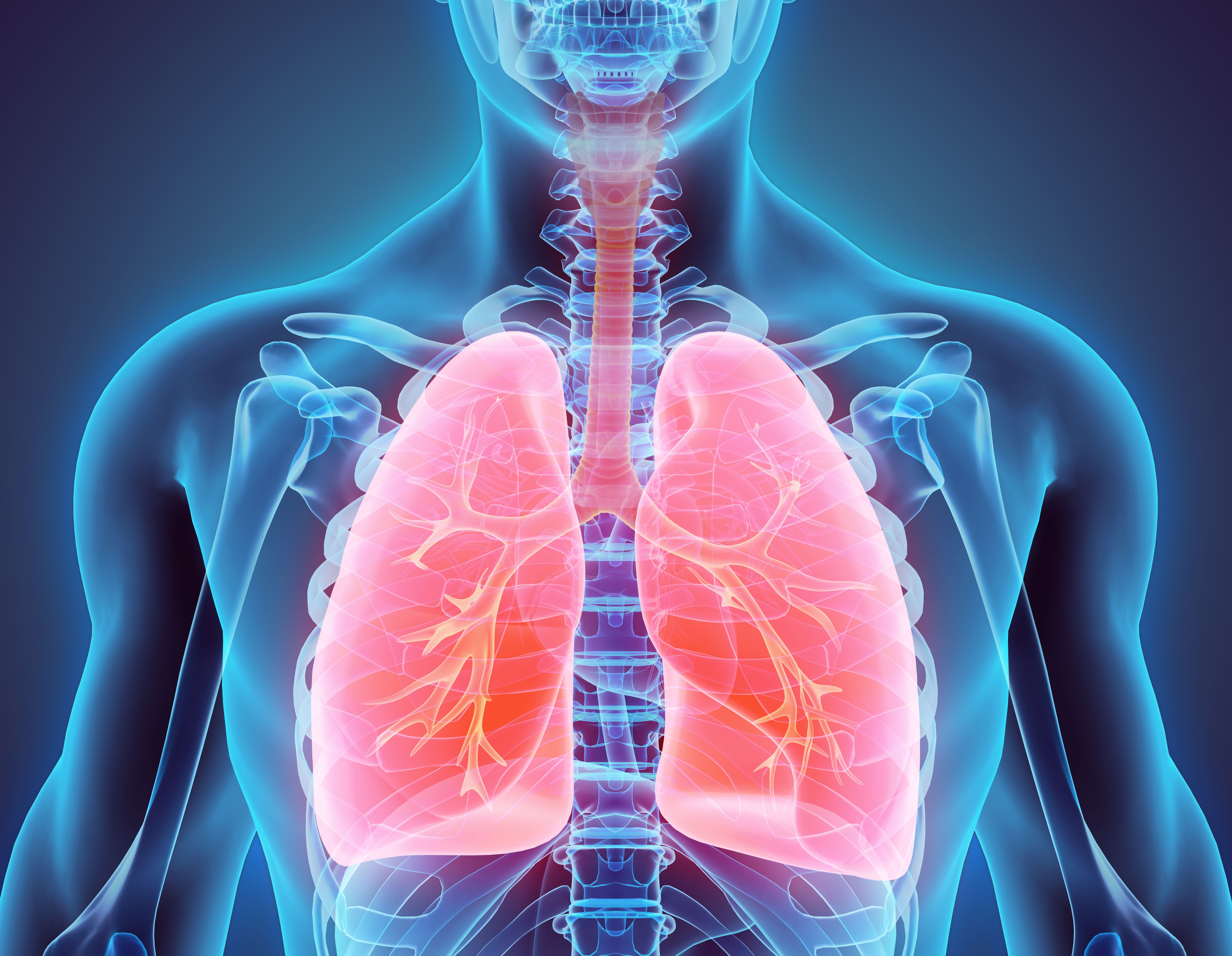- Center on Health Equity & Access
- Clinical
- Health Care Cost
- Health Care Delivery
- Insurance
- Policy
- Technology
- Value-Based Care
Atezolizumab for NSCLC Safe and Effective Before and After CRT
Patients with unresectable stage III non–small cell lung cancer (NSCLC) who received atezolizumab before and after chemoradiation therapy (CRT) had both safe and effective results.
Atezolizumab was found to be safe and effective in patients with unresectable stage III non–small cell lung cancer (NSCLC) when administered both before and after chemoradiation therapy. This phase 2 study, whose findings were published in JAMA Oncology,1 proves that neoadjuvant atezolizumab therapy should be looked into further in patients with NSCLC.
Different treatments for NSCLC, including induction chemotherapy, radiation dose escalation, or new chemotherapy combinations, have been less than successful in patients with the stage III tumor. Adjuvant durvalumab has been found to increase curability in these patients and chemoradiation therapy has been found to preserve performance status without the disease progressing or having any toxic effects. The Alliance Foundation Trial (AFT)-16 study aimed to assess if neoadjuvant atezolizumab would be able to allow more immune checkpoint inhibitor therapy and to better prepare the immune system for chemoradiation therapy.2
Atezolizumab was found to be safe and effective in non-small cell lung cancer | Image credit: yodiyim - stock.adobe.com

Patients were enrolled in the single cohort, phase II, nonrandomized controlled trial between January 3, 2018, and July 24, 2019. All patients were enrolled from the United States. Patients were included if they were treatment naïve, were aged 18 years and older, had unresectable confirmed stage IIIA/B NSCLC, and had an Eastern Cooperative Oncology Group (ECOG) performance status of 0 to 1. Patients with an autoimmune condition, had pneumonitis, or a heart or lung disease were excluded.
All patients needed a physical examination, a computed tomography of the chest, MRI of the brain, and flurodeoxyglucose positron emission tomography within 6 weeks of the entry to the study. Atezolizumab was distributed in an intraveneous method for 4 cycles. The medication was received every 21 days. Toxicity assessments were given to patients to assess their ongoing participation. The primary end point of the study was the disease control rate (DCR) after 12 weeks to see if delayed chemoradiation therapy would not compromise the outcomes. Overall survival (OS), progression-free survival (PFS), overall response rate (ORR), and safety were the secondary end points.
There were 62 patients enrolled in the study who completed the study therapy. The participants had a median (range) age of 63.9 years (38.1-86.5) and 51.6% were female. The majority of the participants reported their race as White (77.4%).
Neoadjuvant therapy was competed in 75.8% of the patients and 71.0% completed CRT; 41.9% completed all therapy. DCR was 74.2% (95% CI, 61.5%-84.5%) after 12 weeks in neoadjuvant atezolizumab with 27.4% having a partial response and 46.8% having a stable disease. ORR was 66.2% with 8.1% of participants having a complete response.
There were 18 (29.0%) participants who died. A median of 31.2 (8.0-40.0) months was used as the follow-up for the remaining participants. The median PFS was 30.0 months (95% CI, 15.8-to not evaluable). The OS rates at 12 months and 24 months were 87.0% (95% CI, 79.0%-95.8%) and 73.7% (95% CI, 63.4%-85.7%). Lung (66.7%) and lymph nodes (16.7%) were the most common places of progression.
There were 17 participants who experienced an adverse event related to the immune system that was grade 3 or higher. Treatment-related adverse events were experienced by 48.4% of the participants and 19.4% discontinued the treatment. The participants who discontinued the treatment had an OS of 90.9% (95% CI, 75.4%-100%) after 12 months and 70.1% (95% CI, 46.5%-100%) after 24 months.
This study has some limitations. This is a phase II single-arm trial and is limited due to this. There was no simultaneous control group, with only a historical control patient group that had differences in study design and patient profiles. Therefore, direct comparisons were not possible.
The researchers found that atezolizumab given both before and after standard chemoradiation therapy was safe and effective in patients with unresectable stage III NSCLC. Future studies into neoadjuvant atezolizumab therapy should be considered based on the results of this trial.
References
- Ross HJ, Kozono D, Wang XF, et al. Atezolizumab before and after chemoradiation for unresectable stage III non-small cell lung cancer: a phase II nonrandomized controlled trial. JAMA Oncol. Published online July 25, 2024. doi:10.1001/jamaoncol.2024.1897
- Ross HJ, Kozono DE, Urbanic JJ, et al. AFT-16: phase II trial of neoadjuvant and adjuvant atezolizumab and chemoradiation (CRT) for stage III non-small cell lung cancer (NSCLC). J Clin Oncol. 2021;39(15). doi:10.1200/JCO.2021.39.15_suppl.8513
